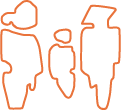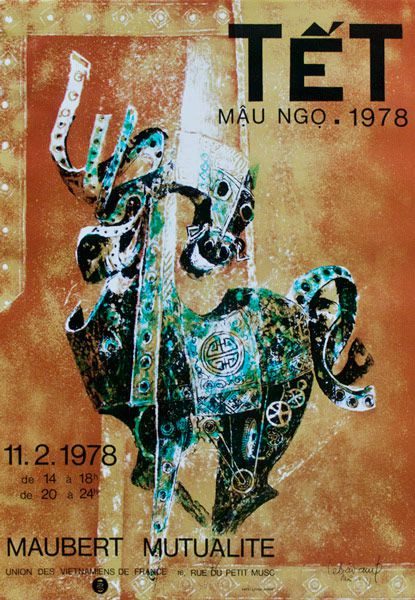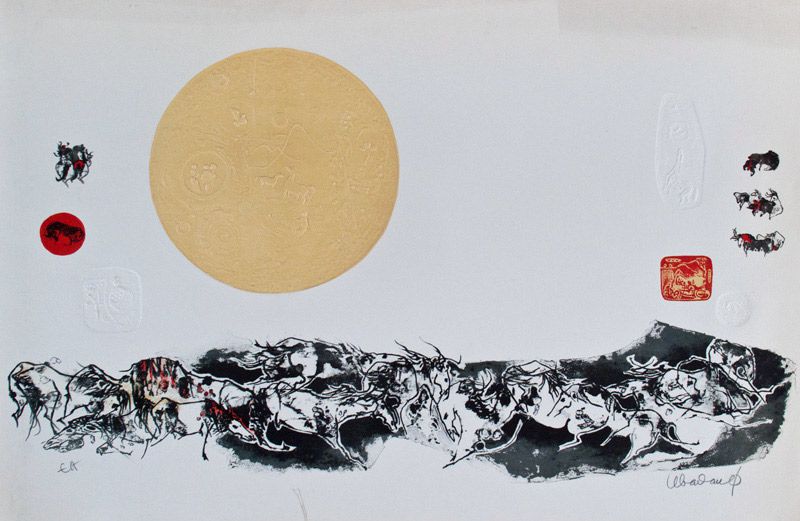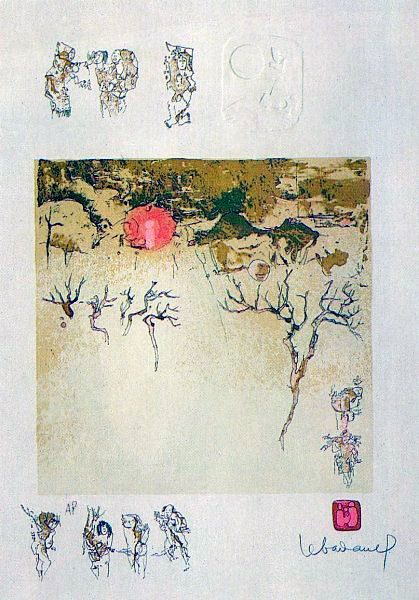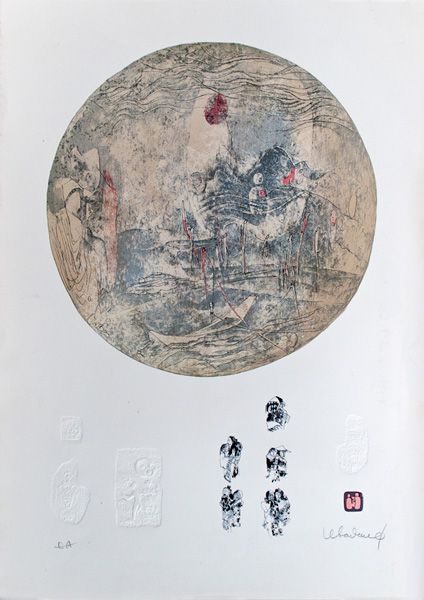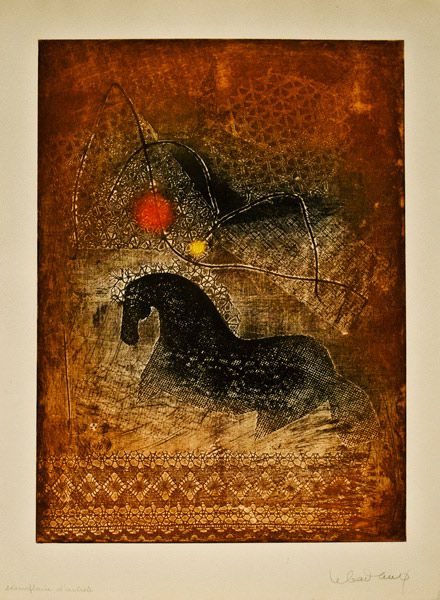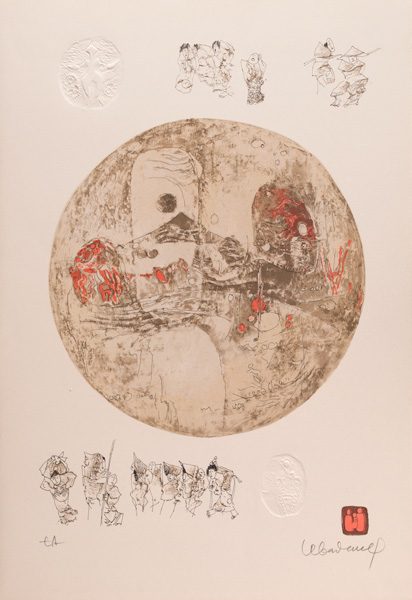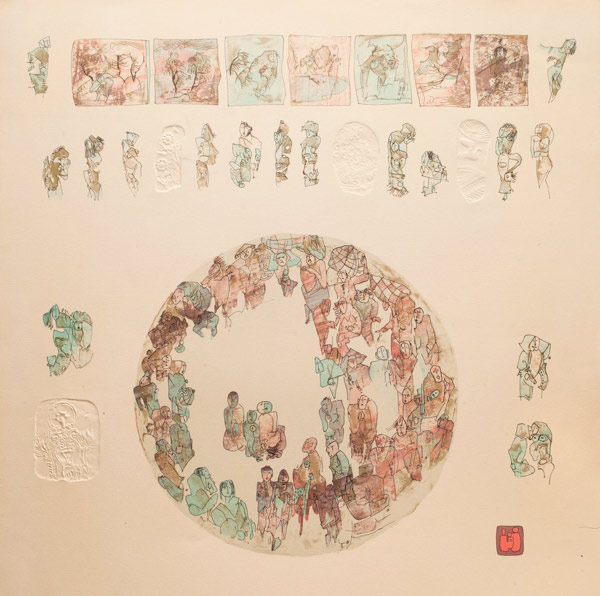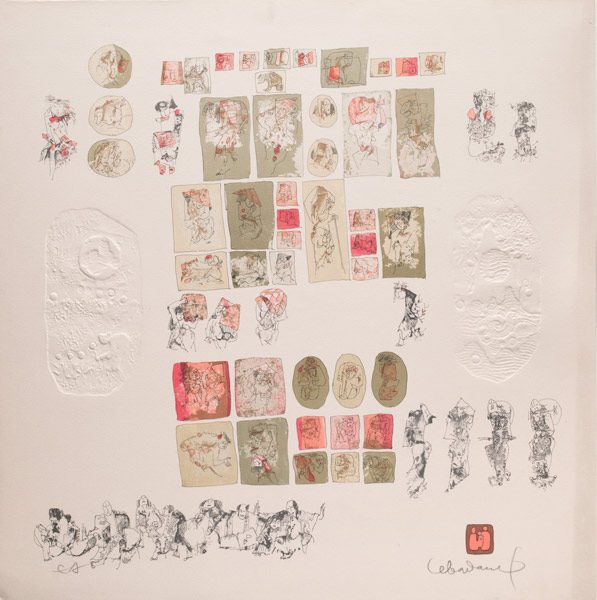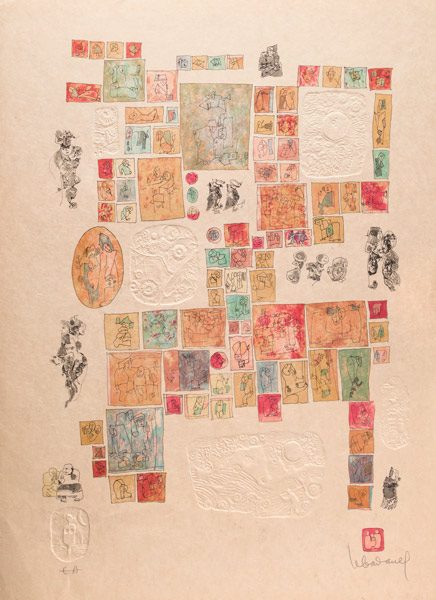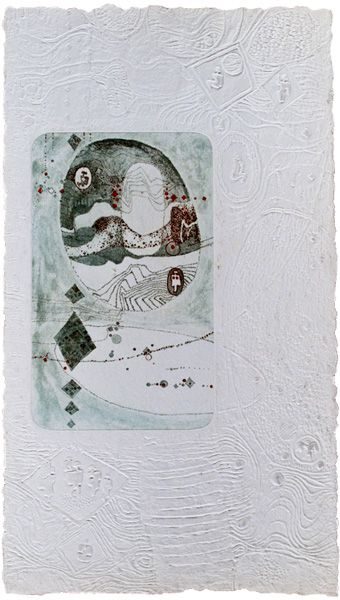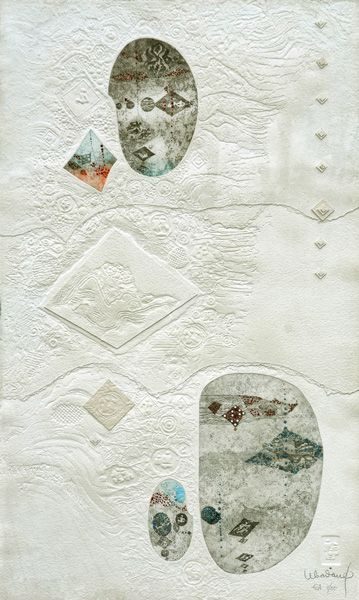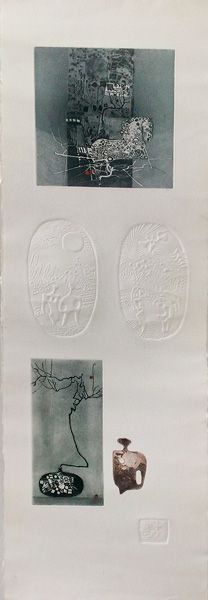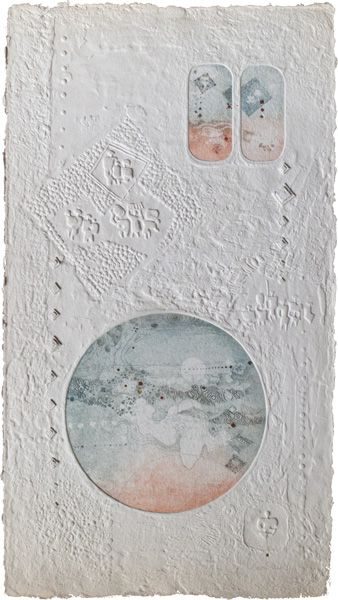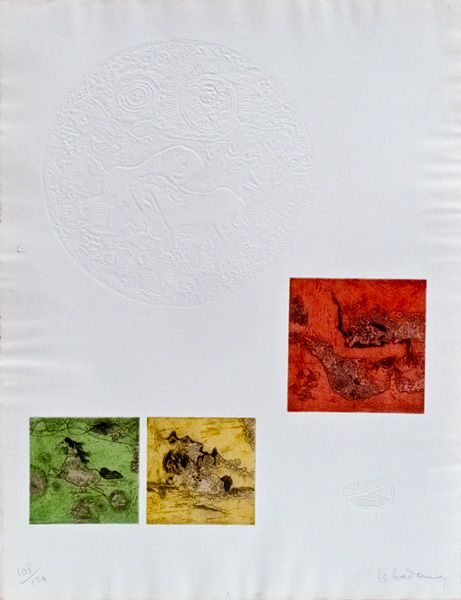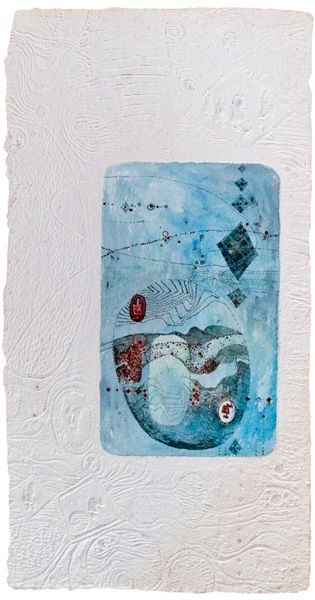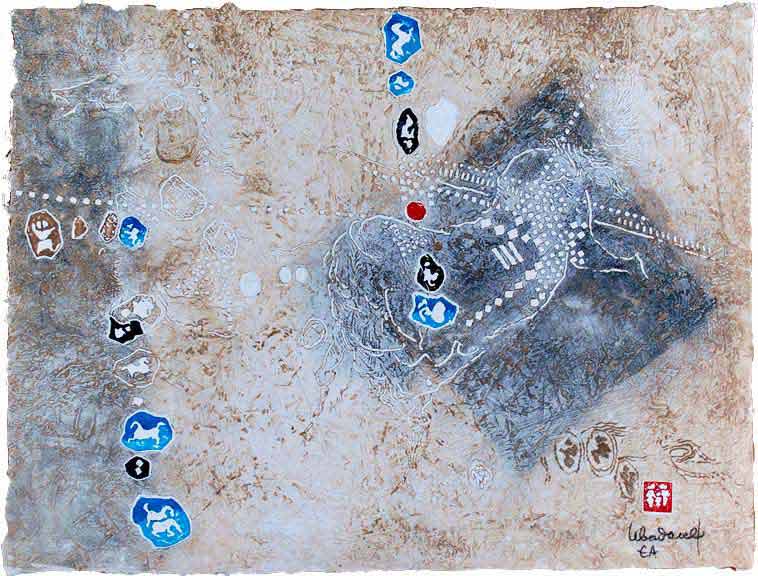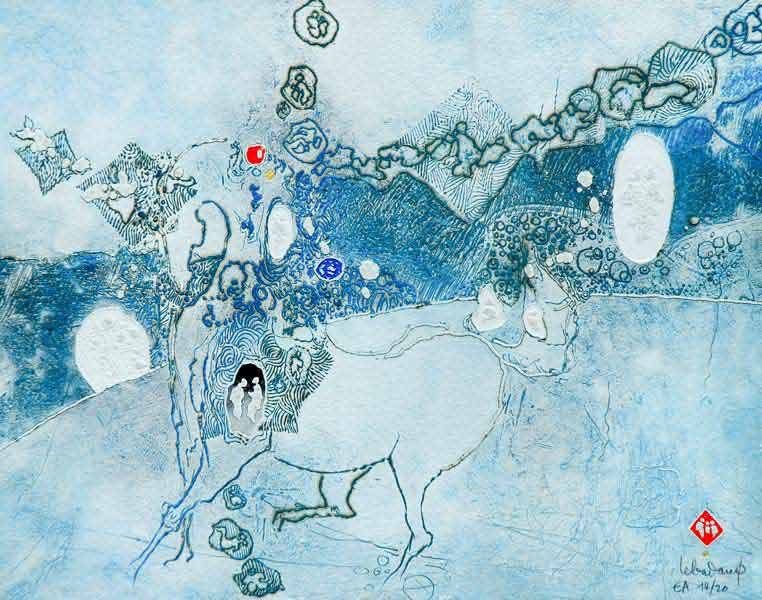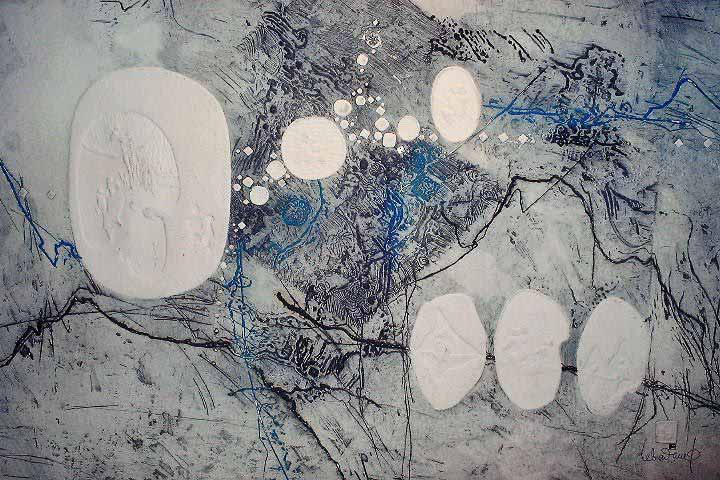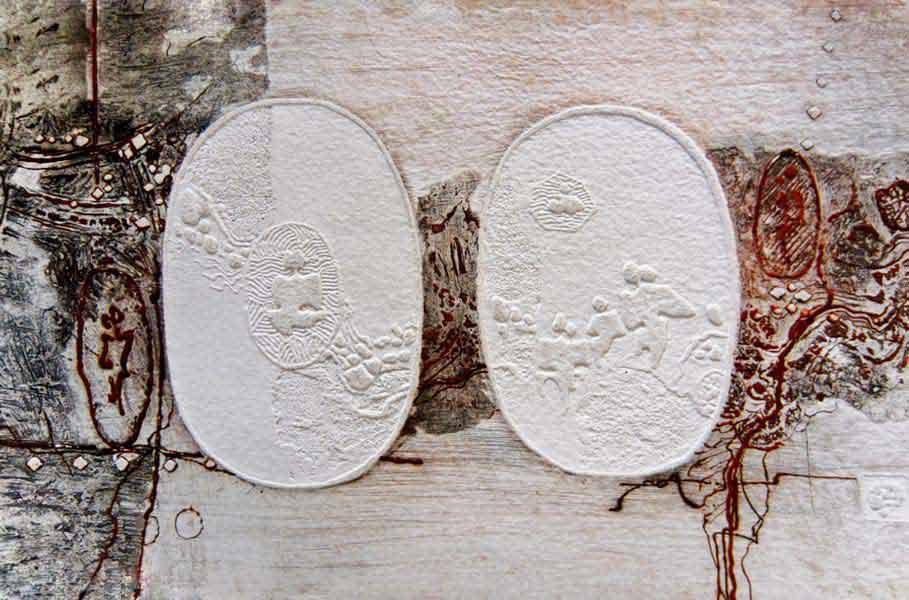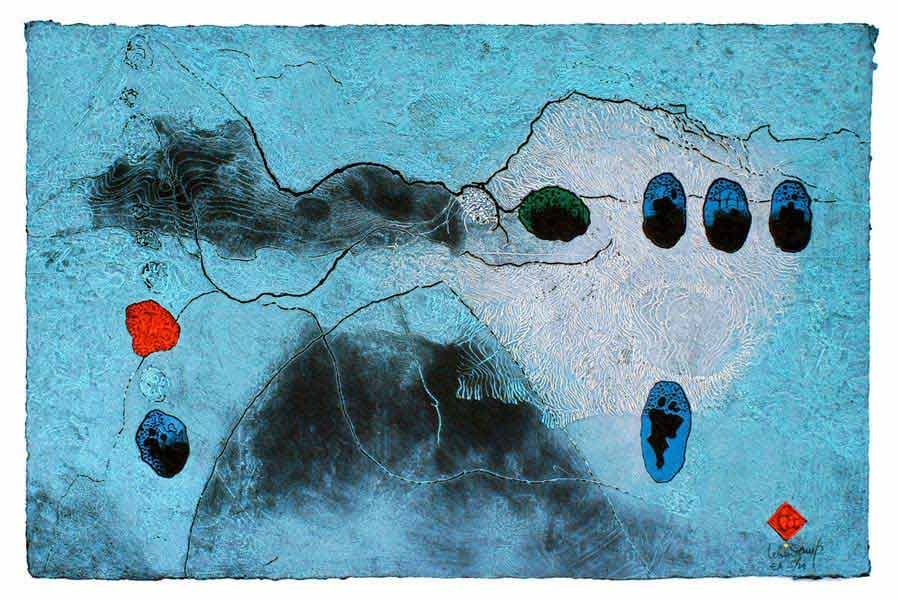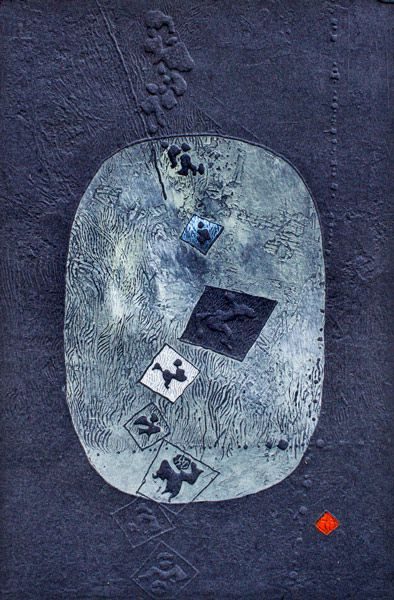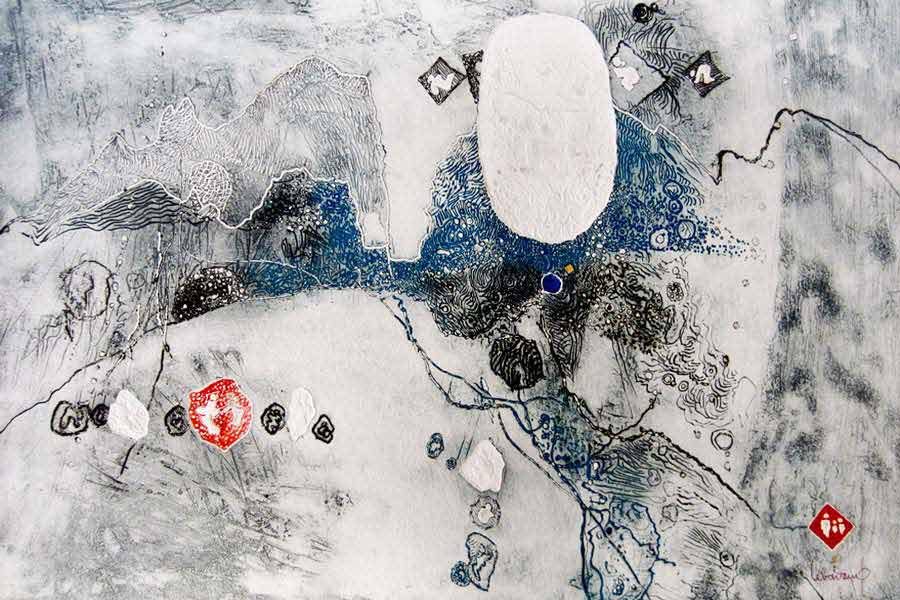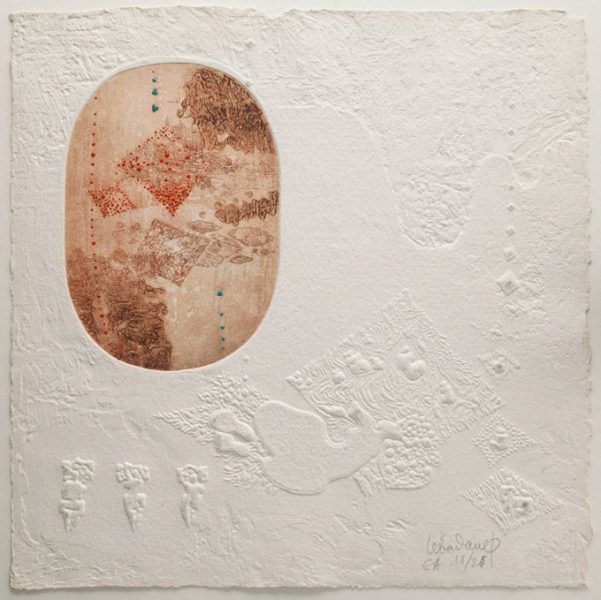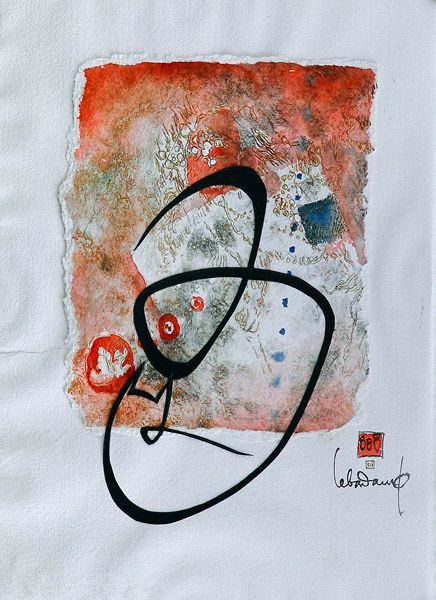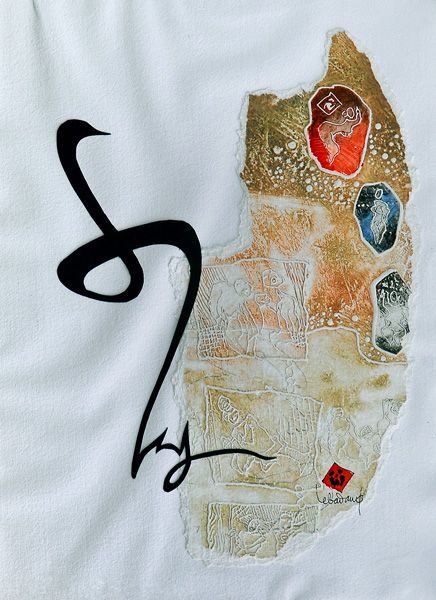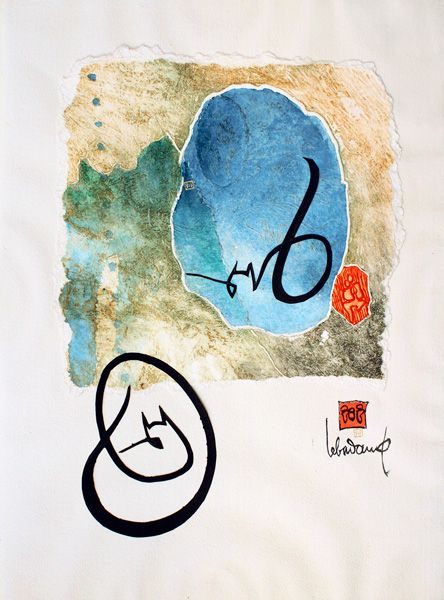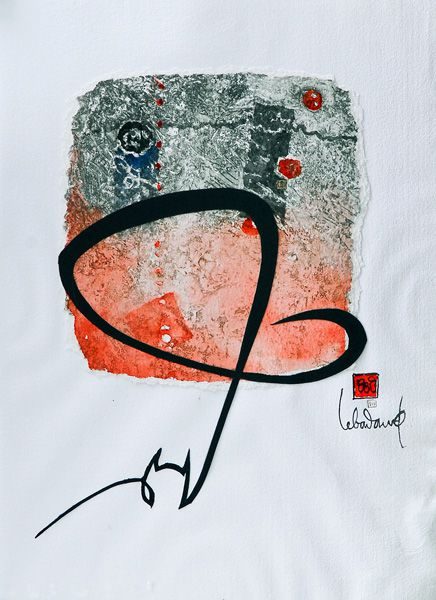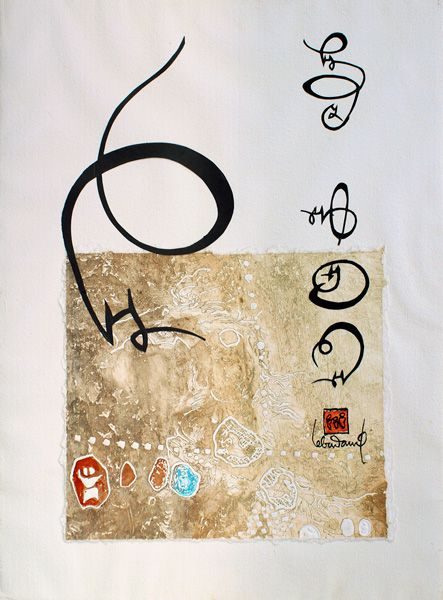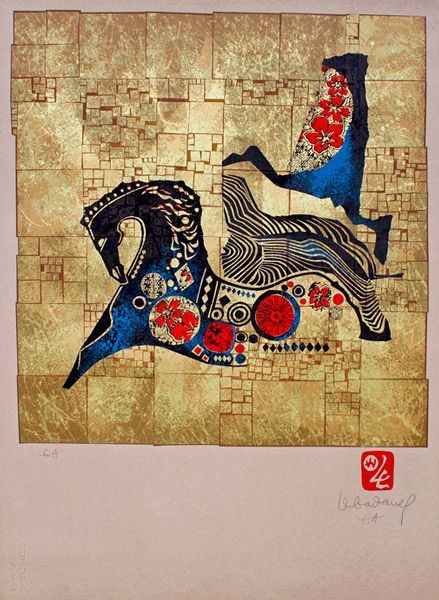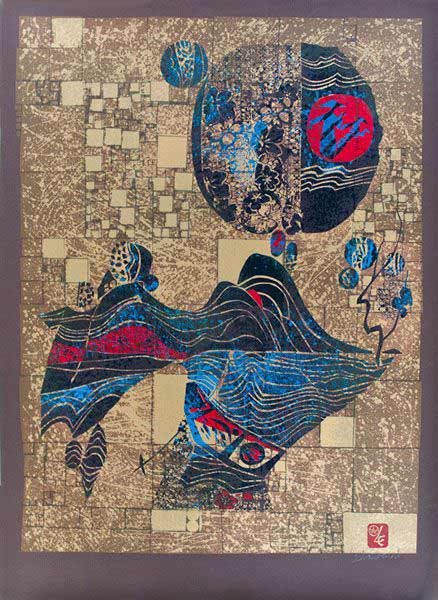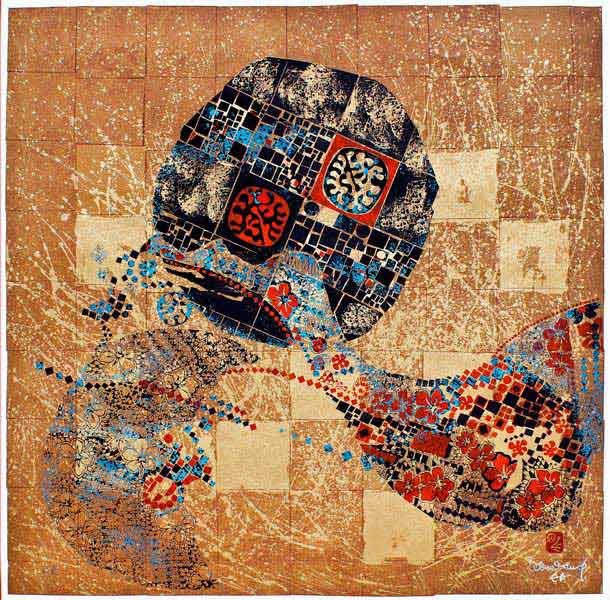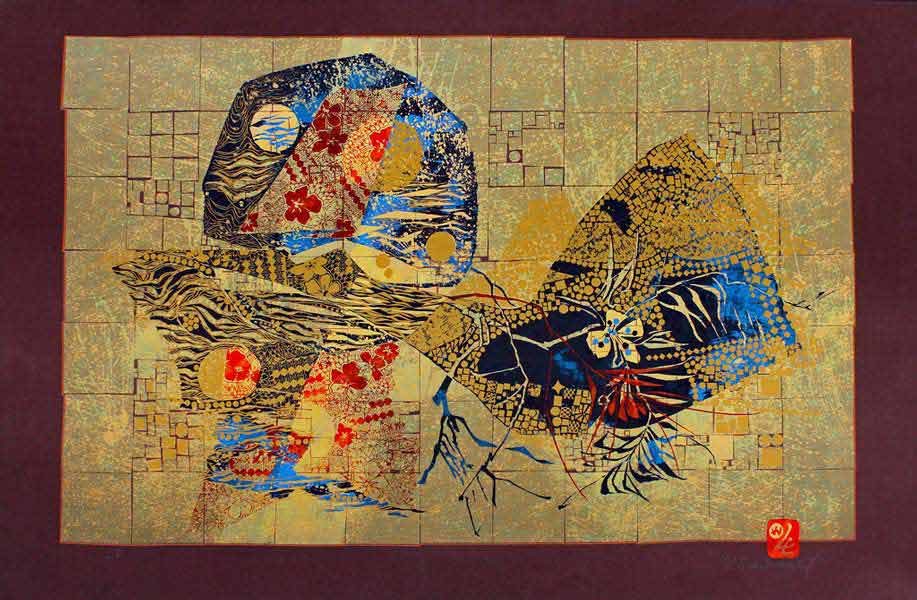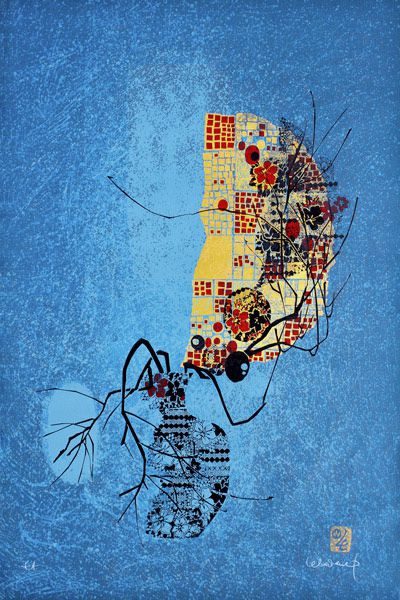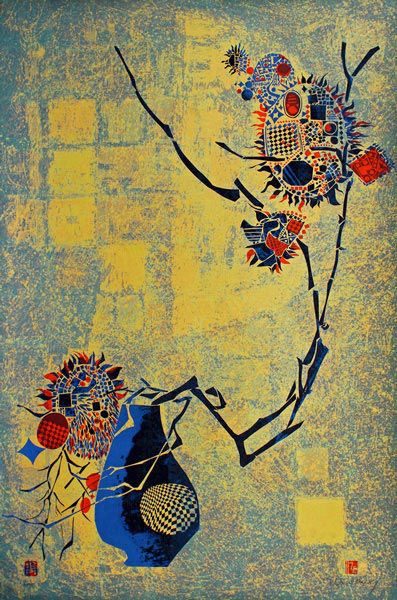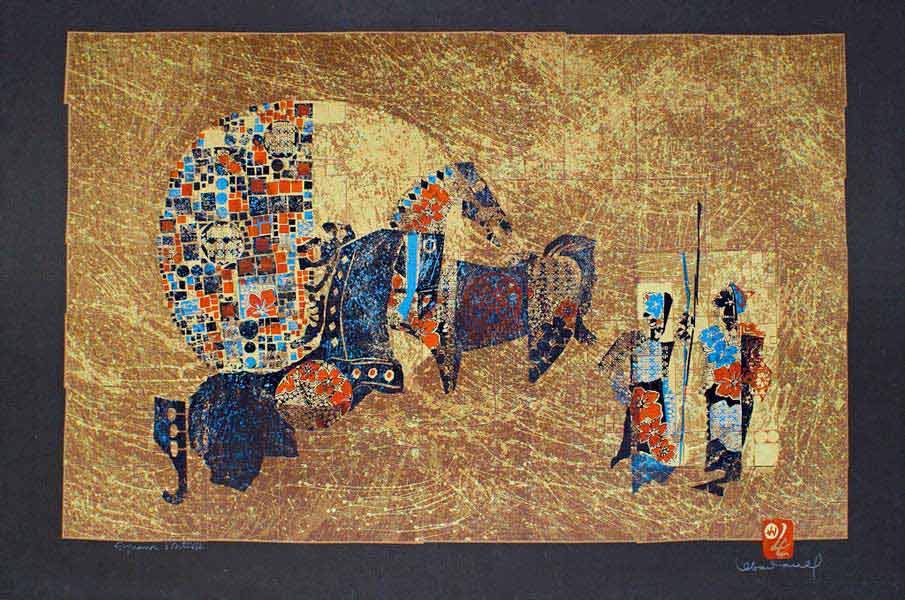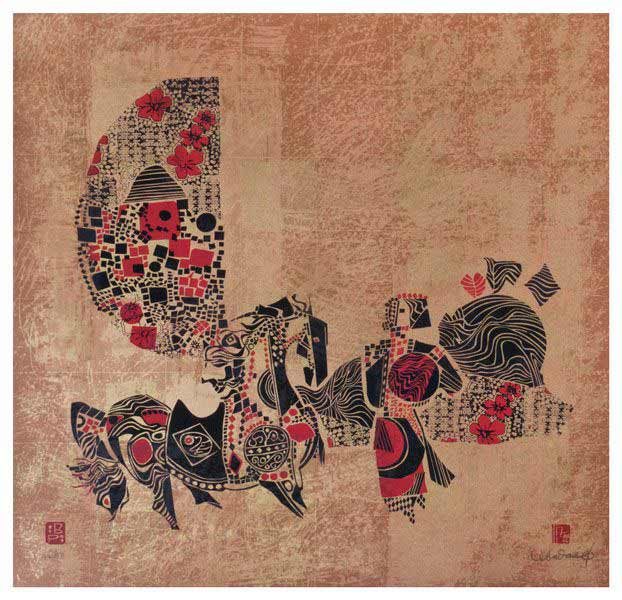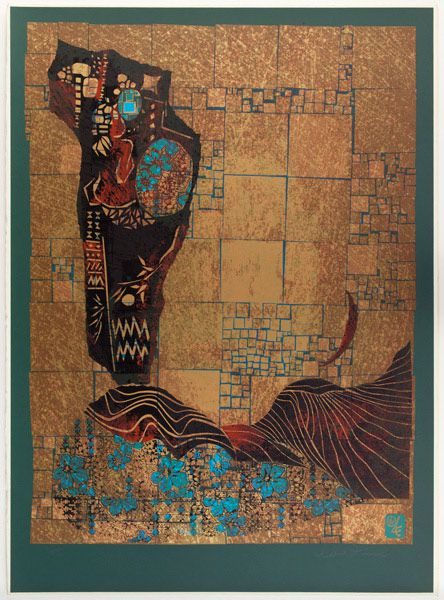In 1958, in Paris, Lebadang discovered lithography in the Arts-Litho studio, and regularly attended the studios of Fernand Mourlot and Jacques Desjobert. In 1964, he achieved Eight horses, his first portfolio done in relief, without colours nor ink, on the poems and calligraphy of Chou Ling who initiated his early research on the materials and techniques of making prints.
In the 1970s, he brought out several porfolios of prints with some new and innovative techniques: relief engravings, embossing, etching on an embossed background, lithographs on doubled Japanese paper, lithographs and reliefs, serigraphs using a « technique of gilding » that he developed in the studios of Circle Fine Art in the United States.
Lebadang has for main collaborator the artist and engraver Bernard Rémusat who also works with César, Arman and Tobiasse.

LEBADANG, “Lebadangraphy – Vase and Twig”, 1970. Silkscreen on paper, 117 x 77 cm, Lebadang Art Foundation, Huê, Vietnam.
Lithographs
Lithographs return to the same subjects : horses, flowers, rowboats and landscapes. From 1981, Lebadang started working on La comédie humaine (The Human Comedy) referring to the work of Honoré de Balzac and representing his own view of the human condition.
Lithographs are made up of dreams and recollections, of images inspired by nature and landscapes of his country in which Lebadang places human figures and scenes of daily life.
Engravings
Relief engravings are abstract landscapes that prefigure the great series of Espaces (Spaces).
Silkscreens
In 1978, he performed Lebadangraphy, a set of serigraphs using a « technique of gilding » that he developed in the studios of Circle Fine Art. He also achieved screens. In these serigraphs, the superimposing of the layers produces a unique silken material in which the thickness of the inking and the transparency and the opacity of the colours have been worked upon.
